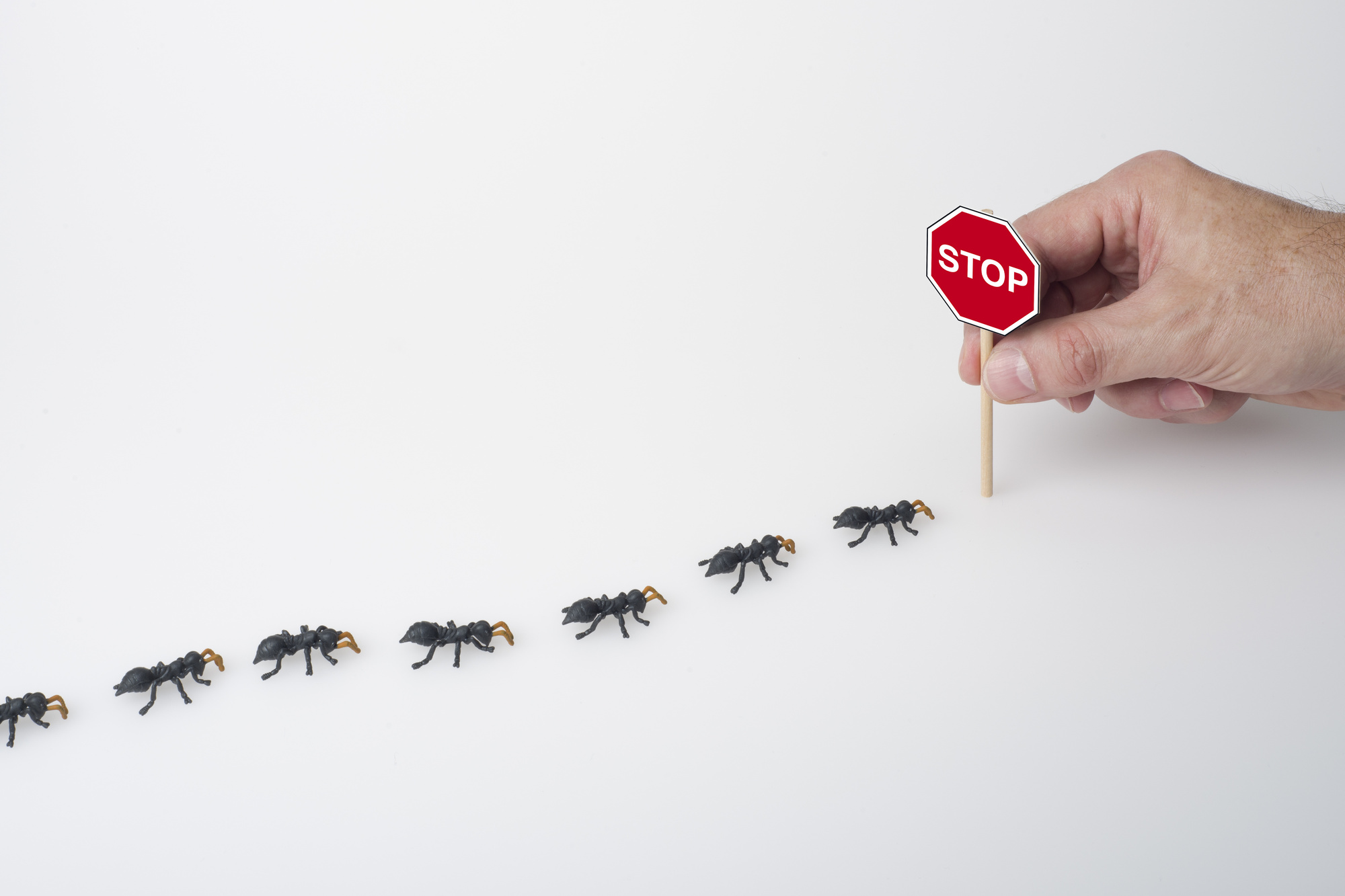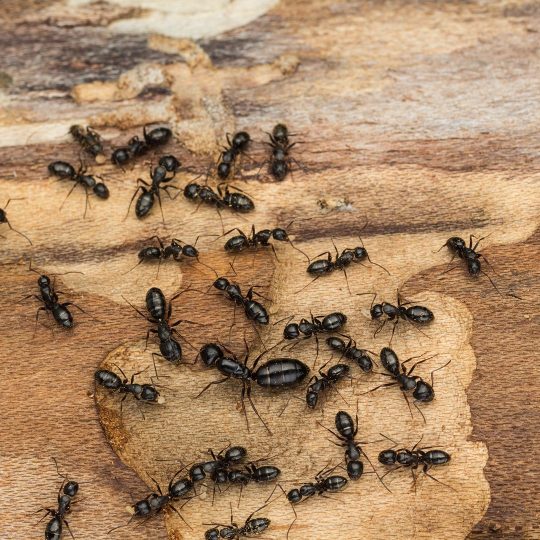Expert Termite Control Services: Secure Your Home from Termite Damage
Expert Termite Control Services: Secure Your Home from Termite Damage
Blog Article
Ecological Effect of Insect Control: Balancing Efficiency With Sustainability
The environmental effect of insect control is a crucial concern that calls for a delicate equilibrium in between achieving efficiency in guaranteeing and taking care of pests sustainability of our ecosystems. As we make every effort to protect our plants, homes, and health from the hazards presented by insects, the methods we utilize can unintentionally harm the atmosphere. From using unsafe chemicals that leak right into our soil and water to the unintended consequences on non-target species, the consequences of standard pest control methods are far-ranging. Nonetheless, there are emerging approaches that use expect an extra lasting strategy to pest management. These solutions not just aim to deal with the immediate insect problems however also think about the long-term health and wellness of our world.
Harmful Chemicals in Insect Control
The use of harmful chemicals in insect control positions significant environmental and wellness dangers that warrant mindful consideration and mitigation approaches. Herbicides, pesticides, and insecticides are typically utilized to eliminate bugs, however their extensive application can lead to unexpected effects. These chemicals can infect dirt, water resources, and the air, affecting not only the targeted parasites however additionally helpful insects, wildlife, and people.

To deal with these risks, integrated pest management (IPM) techniques are being advertised as a much more sustainable alternative. IPM entails a mix of approaches such as organic control, habitat adjustment, and the targeted usage of chemicals as a last resort (ant control stalling nc). By embracing a holistic strategy to pest control, we can reduce the environmental and health and wellness effects connected with unsafe chemicals while successfully managing pest populaces
Influence On Non-Target Types
Taking into consideration the unintended consequences of pest control methods, the effect on non-target types is an essential aspect that requires detailed analysis. While insect control procedures aim to target certain parasites, various other organisms in the ecological community may be inadvertently influenced. Non-target species, including useful insects, birds, animals, and even plants, can experience straight or indirect injury from chemical applications or biological control approaches.
Insecticides designed to fight a certain insect bug may damage pollinators like bees or natural predators such as ladybugs. Biological control representatives, if not species-specific, can position threats to unintended targets, disrupting the environmental balance.
To mitigate the influence on non-target varieties, incorporated bug administration (IPM) strategies that stress an all natural method to pest control are suggested. These approaches prioritize using environmentally friendly techniques, reducing damage to advantageous organisms while properly managing pest populations. Performing extensive risk analyses and keeping track of the results of parasite control efforts are vital action in protecting non-target varieties and promoting total ecological community health and wellness.
Soil and Water Contamination
Unplanned environmental repercussions of bug control techniques expand past affecting non-target varieties, with substantial implications for soil and water contamination. Pesticides, herbicides, and chemical plant foods used in pest control can seep into the soil and infect groundwater, presenting a risk to both aquatic and terrestrial environments. Dirt contamination can interfere with the balance of bacteria important for nutrition cycling and plant growth, causing lowered soil fertility and performance. In addition, these chemicals can continue the environment for prolonged periods, accumulating in the soil and potentially getting in the food web.
Water contamination is one more vital concern related to pest control practices. Drainage from agricultural fields treated with chemicals can bring these chemicals into nearby water bodies, affecting marine microorganisms and water quality. Impurities in water resources can have far-ranging repercussions, influencing not only marine life yet also human wellness via the usage of polluted water or water microorganisms. To reduce soil and water contamination from parasite control tasks, integrated bug management approaches Visit This Link that prioritize sustainability and reduce chemical inputs are critical.
Air Air Pollution From Chemical Usage
Exposure to air-borne chemicals during agricultural applications positions a considerable issue for air contamination control steps. In addition, chemical drift, where pesticides are brought by the wind to unintentional locations, can lead to the contamination of close-by environments and water bodies.

Techniques for Sustainable Parasite Control
In the world of farming practices, executing sustainable pest control approaches is vital for keeping environmental balance and securing crop yields. Sustainable parasite control stresses making use of eco-friendly methods to handle bug populaces successfully while minimizing injury to non-target organisms and environments. Integrated Pest Monitoring (IPM) is a commonly adopted strategy that incorporates organic, social, physical, and chemical control approaches to achieve long-term pest administration solutions.
One trick approach in sustainable bug control is advertising biodiversity within agroecosystems. By improving all-natural opponents of bugs, such as predators and parasitoids, farmers can minimize the need for synthetic chemicals. Plant rotation and diversity are additionally efficient methods to interfere with pest life process and create much less beneficial conditions for bugs to flourish. Furthermore, making use of pest-resistant plant ranges and using techniques like trap chopping can help in reducing pest pressure without depending heavily on chemical treatments. Inevitably, by incorporating these lasting pest control strategies, farmers can accomplish an equilibrium in between pest management performance and environmental stewardship.
Final Thought
In conclusion, the ecological effect of parasite control techniques should be meticulously considered to balance effectiveness with sustainability. Damaging chemicals used in pest control can bring about dirt and water contamination, air pollution, and damage non-target types - termite control. It is crucial to implement sustainable pest control strategies to lessen these negative effects on the setting and promote a much healthier community for future generations
By adopting a holistic technique to pest control, we can minimize the environmental and health and wellness influences linked with unsafe chemicals while properly taking care of pest populaces.

To mitigate the air contamination triggered by chemical usage, it is essential to embrace integrated parasite monitoring techniques that focus on the use of non-chemical insect control methods, such as plant turning, natural killers, and immune crop selections. Lasting insect control highlights the usage of eco pleasant techniques to handle insect populations effectively while reducing damage to non-target microorganisms and environments. Integrated Parasite Monitoring (IPM) is a widely adopted technique that incorporates biological, social, physical, and chemical control approaches to achieve long-term insect administration remedies.
Report this page